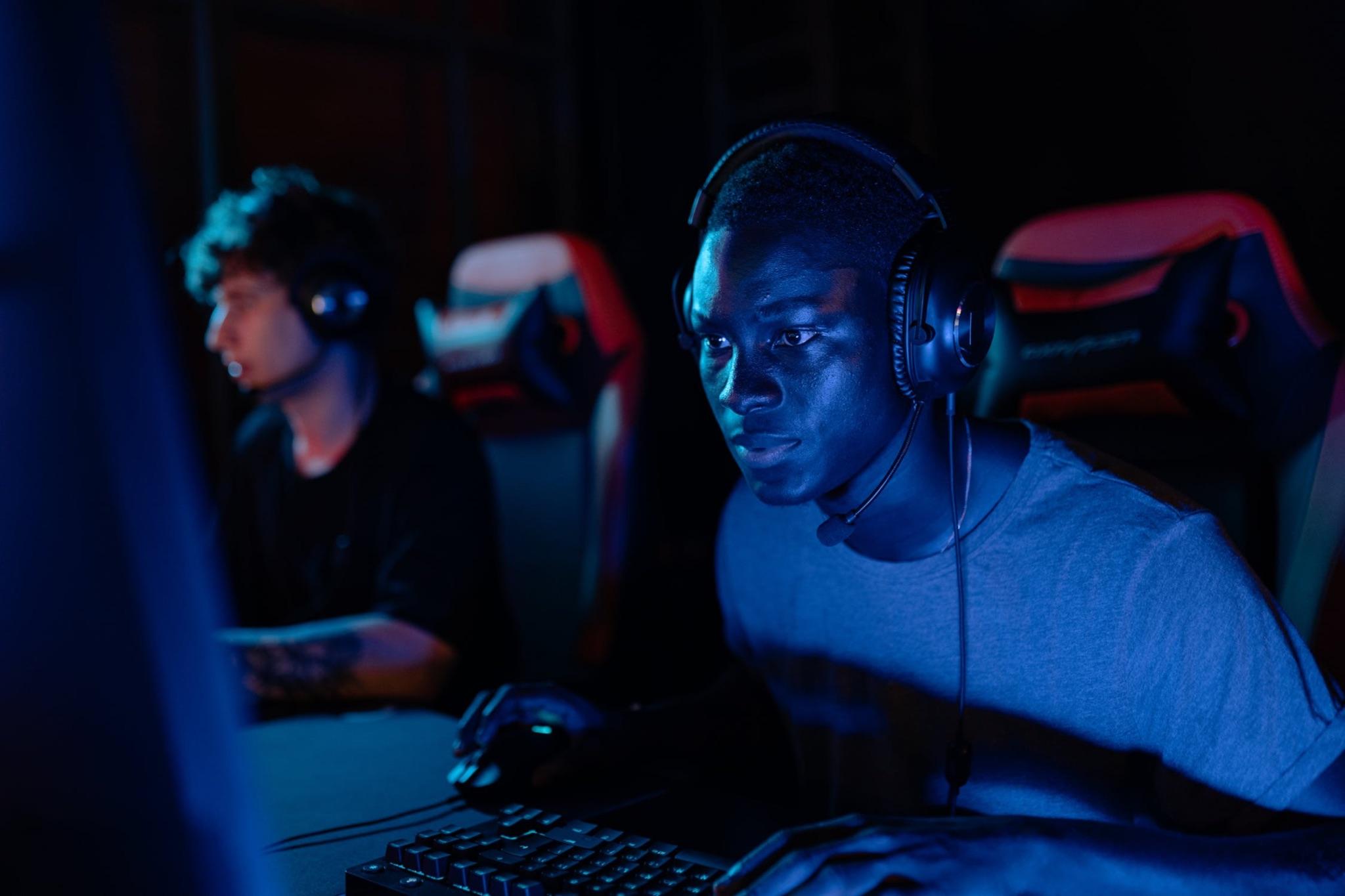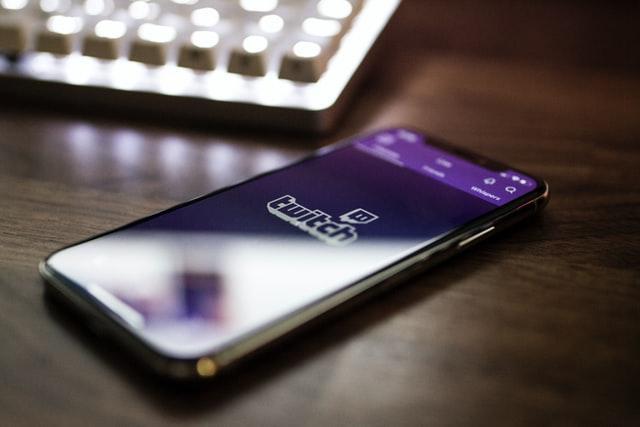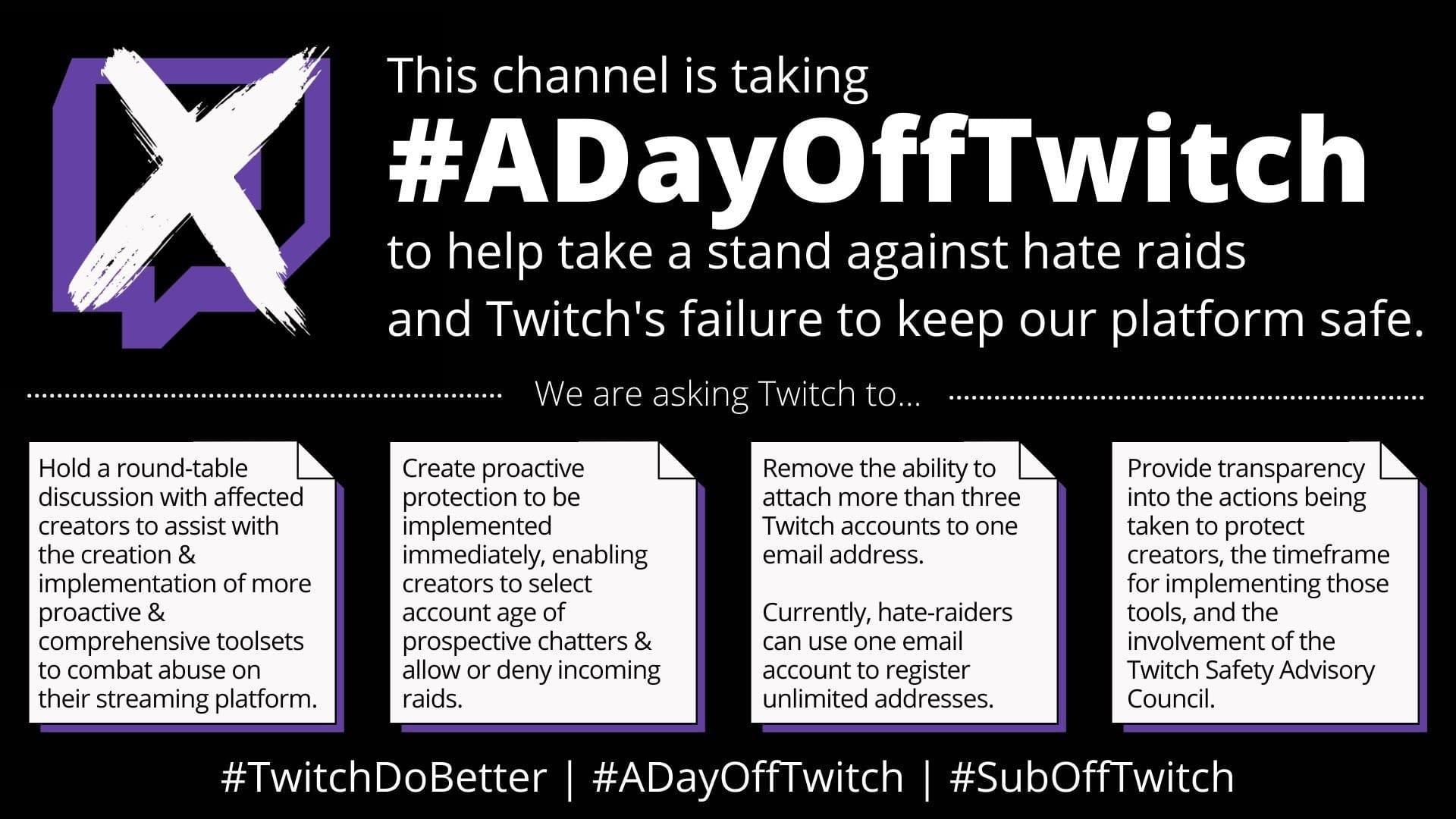Published on January 27, 2023.
By: Edden Yohanes

(Yan Krukov https://www.pexels.com/photo/close-up-photo-of-a-man-playing-near-a-blue-light-9072302/ )
Twitch is an online streaming platform which has risen in popularity with young video game lovers as a contender to the pre-recorded content of websites like YouTube. Viewers go to this platform to find or discover a new favourite broadcaster streaming their own gameplay, doing live commentary, or just chatting.
Although the “live” aspect of this content is what attracts audience participation into the communities of the two million broadcasters, this has made it easy to access inappropriate content or objectionable and toxic streamers.
Shocking or disturbing behaviour is proven to attract large audiences, and because retaining a consistent viewership is the only way to earn viewer donations and subscriptions, there is a huge incentive to constantly behave outrageously to hold viewers’ attention.
Like most social media sites, the majority of the most popular creators are white creators, many of which have made a name in becoming the most contentious streamers on Twitch.

(Caspar Camille Rubin https://unsplash.com/photos/DrL-cwqD6tM)
Although the biggest disputes on the platform tend to involve personal feuds or drama with the platform, there are other more sinister controversies that include stalking, bigotry, and hate campaigns. In 2021, women, LGBTQIA2S+, and Black creators noticed an influx of toxic comments spammed in their chats.
Fans of the creators interact with the streamer, and each other in these chat boxes, however, these spaces are often full of haters and trolls who harass creators they dislike, often for qualities out of their control.
The creators noticed that these messages were spammed by bots, which are robot software which simulate human activity online. These bots were used in what creators called “hate raid,” which involved seeking out the most vulnerable streamers to send racist, sexist, and homophobic spam comments.
Twitch ignored the concerns of their marginal creators until a group of them came together on Twitter to boycott #aDayOffTwitch, to which Twitch has responded by promising a safer place for all creators.

(Bleeding Cool https://bleedingcool.com/games/the-a-day-off-twitch-protest-movement-is-today/)
Twitch believes hate comments and bullying are not only a normal occurrence on Twitch, but enmeshed into the culture of gaming, a culture which is now intertwined into the Twitch community.
As a favourite pastime of millions of people all around the world, video game chat rooms and voice chat lobbies have also become dark spaces full of “emotional abuse, including hate speech and racism.” In March 2022, Preply interviewed 1400 people about their gaming experiences, which unearths some very interesting though not surprising results.
90 per cent of gamers have experienced some form of verbal and emotional bullying when playing video games with others in the virtual spaces available on computer and console platforms.
More than half of those consulted believe that playing video games can help with skills like communication, problem-solving, decision making, and hand-eye coordination. 51 per cent agree that video games can be healthy for a person’s mental health, while 41 per cent disagreed. The downside to frequent video game use is seen to have a large impact on one’s social life, romantic relationships, physical health, and sleep.
Out of the 36 per cent of people who have experienced hate speech on video game platforms, 44 per cent have experienced racism. Due to the bullying and extremist content, 67 per cent of gamers have considered quitting the gaming community altogether. However, what is more common is the 57 per cent of people who blocked or muted bullies, and 49 per cent of people who reported those bullies.
Racism has become such a joke in the gaming community that the creator Silksheets created a video series on TikTok where he timed how long it would take for him to be called the n-word while playing the popular video game Call of Duty.
Since 2018, Twitch has been celebrating Black History Month, where they show “love and appreciation to broadcasters of colour and their communities all month!” Every February, in the last four years, Twitch would highlight their Black broadcasters on the “Recommended” section of Twitch’s front page.
In 2022, they titled the section the Celebrate Black Brilliance. Although those who would have visited the Twitch website in February would have been greeted by a row of Black streams actively streaming at the moment, those who access the website will not find this section anymore.

(twitch.tv https://blog.twitch.tv/en/2022/02/01/tune-in-and-celebrate-black-creators-all-month-long/)
This is what we would call performative activism, which is the performance of support for a community that a person or a company like Twitch can implement in order to look charitable and supportive to that community. By removing this directory towards Black streamers, it became difficult for the audience to find the few Black creators on the platform.
Those creators that they highlight become pawns in the platform’s public relations (PR) campaign to look like a safe and friendly place for viewers to find enjoyable content. The Black broadcasters then lose Twitch’s support as soon as they stop being useful to its PR efforts.
There are a good number of Black streamers who have been able to grow large supportive audiences on Twitch. Broadcasters like Myth, Nmplol, and Im_Donai found fame using their skillful gameplay and exciting personalities, while others like YouTuber Clarence Javelli, aka Flight23white, and rapper and businessman Soulja Boy joined Twitch to reach new audiences while also drawing in their old ones to the platform.
Even though it is a new platform, Twitch has a lot of influence among the video game and streaming industry. At the moment, Black audiences will still find that Black and streamers from other vulnerable communities are the minority on the platform, and therefore struggle to bring attention to the issues they face regularly.
Despite the fact that the video game community is traditionally a space that welcomes and encourages bullying and hate speech, even before Twitch, Twitch is still responsible for the antagonistic viewers and bots who spread hate, even if they do not encourage it.
Edden Yohanes is the Copy Editor at Black Voice. She is a recent publishing graduate from the Centennial College Book and Magazine Program, where she learned the fundamentals of editing, fact checking and proofreading. Although she mainly works as an editor, she is passionate about all aspects of publishing—from the Word doc to the printer! She has a special interest in Ethics and Human Rights, and she has a vested commitment to reforming Anti-Black racism in Ontario as a proud Black Woman. You can find what Edden is working on at any time at www.eddenyohanesportfolio.ca

